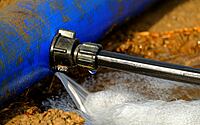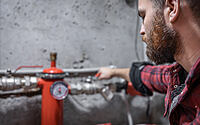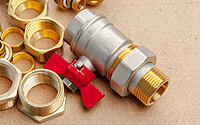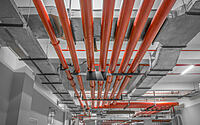Top 5 Causes of Leaky Pipes
Statistics indicate that an average American household wastes over 10,000 water gallons yearly, and 10% of homes experience leaks that result in at least 90 gallons a day going down the drain unused. This contributes to a higher monthly water bill. Besides water wastage, leaky pipes can also cause mold and compromise your home’s foundation. Knowing why leaky pipes occur can help you avert/ resolve them quickly. Outlined in this post are the top five causes of leaky pipes
Clogged drains
Clogged drains usually result in plumbing leaks in the pipes connected to garbage disposals, tubs, and sinks. Thanks to clogs, water can back up in these fixtures’ drain pipes. The water standing in the pipes leads to leaks through the seals and caulking. Due to increased water pressure that’s left unresolved, clogged drains can result in pipes bursting. If the clogs contain corrosive substances such as household chemicals, your pipes may experience accelerated damage. Being careful about what goes down your drains and setting up hair traps can help prevent clogged drains. However, if your drains/ plumbing pipes are already clogged, a trusted plumber can help address the issue.
Freezing temperatures
Freezing temperatures may cause your plumbing pipes to break because frozen water raises pressure in the pipe. Once the water in the pipes freezes, it starts solidifying into ice and then expands, which increases the risk of the pipes bursting as they cannot contain the volume any longer. Poorly insulated pipes have a higher bursting risk as temperatures drop below zero. Most homes in warm climates are also at risk because of insufficient cold temperature insulation, particularly during cold seasons when water can freeze unexpectedly. To prevent cold weather-related pipe freezing, insulate your pipes adequately and ensure annual home winterization.
Underground movements
Underground plumbing pipes are prone to damage from underground movements, which may be caused by soil or tree roots shifting. If tree roots start growing underneath your property or towards the underground pipes, the risk of puncturing sewage or water pipes increases. In addition, if construction is happening nearby, soil might become unstable, impacting underground pipes. Geological factors, such as erosion, may also shift the soil over time. If you see water pools in your home, but the source isn’t obvious, an underground pipe might have burst because of soil/ tree roots shifting. Call a professional plumber to locate and remediate the issue before it escalates.
High water pressure
Excess water pressure buildup in your plumbing system can have devastating effects. It results in banging pipes, which, besides causing loud noises, impact your plumbing system. High water pressure causes leaky pipes. The damage from banging pipes and the additional water pressure can lead to loosened joints and pinhole leaks in your plumbing system, causing water wastage. The water often pools undetected in walls, floors, and even roofs, becoming apparent only after mold grows or when rot leaves a foul odor in your home. Having a water pressure regulator added to the waterline can help reduce water pressure.
Pipe aging or corrosion
Pipes wear down and corrode as they age, which makes them prone to bursts and leaks. Corroded pipe-related water damage may happen without warning or begin with slow drips that worsen over time. Consider getting your copper pipes assessed and repaired/ replaced if you reside in an older home to alleviate health risks and damage.
Endnote
Different elements trigger leaky elements. Knowing the root causes of leaky pipes can help you protect your home better.
- by Matt Watts





